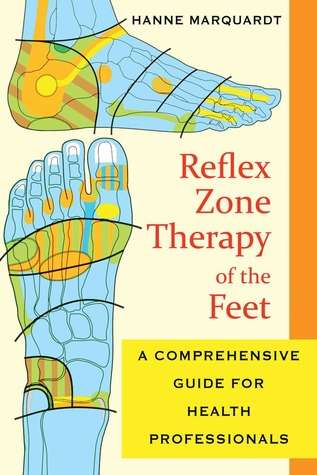Stress, defined as emotional tension or mental strain, is all too common of a feeling for many of us.
According to the American Psychological Association (APA), the average stress level of adults in the United States in 2015 was 5.1 on a scale of 1 to 10.
Too much stress can produce both physical and emotional symptoms.
Let’s look at some of the emotional signs of stress and what you can do to reduce and manage them.W
The Anxiety and Depression Association of America (ADAA) defines diagnosed depression as an illness in which an individual experiences a persistent and severe low mood.
Researchers have found connections between high levels of stress and the onset of depression.
A 2020 animal study also suggested these connections, in addition to a protein in the brain that is important for the functions of both serotonin and for the release of stress hormones. This could have important implications for new treatments for depression.
Another 2015 observational study examined stress levels of the working age population, measuring participants’ overall stress levels and symptoms. Depression was more common in people who reported higher levels of stress.
Treatment
- Reach out to a mental health professional.
- Both psychotherapy and medication can be effective treatments.
- Support groups, mindfulness techniques, and exercise may also help.
2. Anxiety
Anxiety differs from depression in that it’s characterized by feelings of overwhelming dread or fear.
However, like depression, studies have suggested that stress may be linked to anxiety and anxiety disorders.
In one 2015 study, researchers investigated the effects of stress levels at home and work on anxiety and depression levels. They found that people who experienced high levels of work stress were more likely to have more symptoms of anxiety and depression.
Treatment
- Reach out to a mental health professional.
- Treatment options include psychotherapy and medication.
- Alternative and complementary treatments are also available.
3. Irritability
Irritability and anger can become common traits in people who are stressed.
In one older 2014 study, higher levels of anger were associated with both mental stress and the possibility of a stress-related heart attack.
Another study investigated the relationship between anger, depression, and stress levels in caretakers. The researchers found an association between care-related chronic stress and anger levels.
Treatment
- A variety of strategies can help keep anger levels under control. Relaxation techniques, problem solving, and communication are all great methods for helping to curb anger.
- Anger management techniques can help to reduce the stress in situations that’d normally leave you frustrated, tense, or angry.
4. Low sex drive
In some people, too much stress can have a negative impact on sex drive and the desire to be intimate.
A study published in 2014 found that chronic stress levels had a negative impact on sexual arousal. The research suggested that both high levels of cortisol and a higher chance of being distracted led to lower levels of arousal.
Much of the research surrounding stress and low libido involves women, but it can certainly affect others, too. One animal study showed that social stress during adolescence affected the sexual appetite of male hamsters during adulthood.
Treatment
- Reducing stress can help to restore your sex drive and improve libido.
- Self-care, relaxation techniques, and exercise are a few ways to raise self-confidence.
- Improving communication with a sexual partner may improve intimacy and restore positive feelings towards sex.
5. Memory and concentration problems
If you find yourself having trouble with concentration and memory, stress may be a part of the problem.
A 2015 animal study found that adolescent rats exposed to acute stress experienced more memory performance issues than their non-stressed counterparts.
Another 2014 review investigated the stress-response pathways in the brain and their effect on long-term memory. Researchers found that certain hormones following a stressful or traumatic event can have the ability to impair memory.
Treatment
- Various lifestyle changes may help improve memory.
- Maintaining a balanced diet and keeping your body and mind active can keep you focused.
- Avoiding activities like drinking and smoking can help keep your brain healthy.
6. Compulsive behavior
There has long been a link between stress and compulsive behaviors.
One paper expanded on the idea that stress-related changes in the brain may play a role in the development of addiction. According to the researchers, chronic stress can change the physical nature of the brain to promote habit- and addiction-forming behaviors.
Another 2018 study found more associations between stress response and addictive disorders as well as other health consequences.
Treatment
- Healthy lifestyle habits can help to reduce compulsive behavior. For more serious compulsive behaviors, professional help may be necessary.
- If you’re concerned about substance use, the National Institute on Drug Abuse has resources for starting on the road to recovery. These include lifestyle recommendations to help manage stress.
7. Changes in mood
The many emotional effects of stress can leave you feeling like you’re experiencing abrupt changes in mood.
One study from 2014 examined the role of various types of stress tests on physiology, mood, and cognition. The research showed that both social and physical stressors can have a big impact on emotional well-being and mood.
With the many emotional signs of stress, it’s easy to see the influence stress can have on your overall mood.
Treatment
There are many ways to improve your mood, such as:
- reducing stress
- enjoying nature
- celebrating with friends
- using mindfulness techniques
For more serious changes in mood that don’t seem to go away, reach out to a mental health professional for help.
Ways to manage and reduce your stress
Reducing the emotional symptoms of stress starts with reducing the sources of stress in your life.
The American Institute of Stress explains that while there are a variety of stress-reducing techniques, finding ones that work for you is important.
- Physical activities such as running, jogging, and aerobics are a great way to physically relieve stress and tension.
- Relaxing physical activities such as yoga or tai chi can help to work your body while relaxing your mind. Try these yoga poses to relieve stress.
- Mindfulness techniques such as meditation can strengthen your emotional responses to stress.
- Reducing stress in different areas of your life, when possible, can help to lessen your exposure to chronic stressors.
- Mobile apps may calm your mind and offer guided conversations to help you manage stress and anxiety.
What’s the outlook?
Finding the stress-reducing techniques that work for you is an important step in decreasing emotional symptoms of stress.
Over time, you may find that your resolve against stress becomes stronger and that your symptoms improve.
However, if you find that you’re having trouble managing the emotional aspects of everyday or chronic stress, it may be best to reach out to a mental health professional.
Keep in mind that stress can also affect your physical health. It’s important to get help to stay in your best shape, emotionally and physically.
Online therapy options
Read our review of the best online therapy options to find the right fit for you.
What is emotional stress?
Stress is a normal reaction to the pressures of everyday life. Worry, fear, anger, sadness and other emotions are also all normal emotional responses. They are all part of life. However, if the stress that underlies these emotions interferes with your ability to do the things you want or need to do, this stress has become unhealthy.
What are the warning signs and symptoms of emotional stress?
Symptoms of emotional stress can be both physical, mental and behavioral.
Physical symptoms include:
- Heaviness in your chest, increased heart rate or chest pain.
- Shoulder, neck or back pain; general body aches and pains.
- Headaches.
- Grinding your teeth or clenching your jaw.
- Shortness of breath.
- Dizziness.
- Feeling tired, anxious, depressed.
- Losing or gaining weight; changes in your eating habits.
- Sleeping more or less than usual.
- Gastrointestinal problems including upset stomach, diarrhea or constipation.
- Sexual difficulties.
Mental or behavioral symptoms include:
- Being more emotional than usual.
- Feeling overwhelmed or on edge.
- Trouble keeping track of things or remembering.
- Trouble making decisions, solving problems, concentrating, getting your work done.
- Using alcohol or drugs to relieve your emotional stress.
How can I better cope with emotional stress?
There are many techniques that can be tried to help you better manage your emotional stress. Try one or more of the following:
Take some time to relax: Take some time to care for yourself. Even if you can devote only five to 15 minutes a few times a day to relax, take a break from reality. What activity helps you relax? Some ideas include:
- Read a book.
- Download and listen to a “calm” app (sounds of nature, rain) on your computer or phone.
- Take a walk. Practice yoga.
- Listen to music, sing along to a song or dance to music.
- Enjoy a soothing bath.
- Sit in silence with your eyes closed.
- Light a scented candle.
Practice mindfulness: Mindfulness is learning how to focus your attention and become more aware. You can learn to feel the physical changes in your body that happen in response to your changing emotions. Understanding this mind-body connection is the first step in learning how to better manage your stress and how emotions affect your body. Mindfulness can also help you focus your mind on the immediate – what can I do to bring my mind and body to a place of calmness. If you can figure out what helps you feel more calm and relaxed in that moment, you know you’ve figured out one of your stress triggers and what works to manage it.
Distract your mind and focus on something else: Focus your mind on something other than what’s causing your stress. Do something fun. Watch a funny movie, play a game, engage in a favorite hobby (paint, draw, take pictures of nature, play with your pet). Volunteer for an activity to help others. Do something with people you enjoy.
Try journaling: Journaling is the practice of writing down your thoughts and feelings so you can understand them more clearly. It is a method that encourages you to slow down, pay attention, and think about what is going on in your life – and your feelings and reactions to these happenings. Since journaling can reveal your innermost thoughts, it can reveal your emotional stress triggers. You can identify and then replace negative thoughts and feelings with behaviors that are more positive. Journaling is a healthy and positive way to face your emotions. When you confront your emotions, healing or change can begin.
Practice meditation: Meditation is another way to actively redirect your thoughts. By choosing what you think about, such as positive thoughts or warm, comforting memories, you can manage your emotions and reduce your emotional stress.
When should I get help for my emotional stress?
If you have any of the symptoms of emotional stress and have tried one or more of the remedies discussed in this article and haven’t found relief, seek professional help. If you feel overwhelmed and can’t manage your emotions and stresses on your own, seek the help of a professional. Don’t stay “frozen” or feeling like you’re holding your breath waiting for your feelings to be over. If you are stuck in a rut and can’t get yourself out, seek professional help.
Counselors and mental health therapists are trained professionals who can find ways to help you cope, reduce the effects of emotional stress, help you feel better and become more functional in your day-to-day activities.
If you or a loved one have thoughts of suicide, call the National Suicide Prevention Lifeline at 1-800-273-TALK (8255). They are available 24 hours/day, seven days a week.
What else can I do to help myself better manage emotional stress?
In terms of your general health, which affects your ability to manage and cope with stress, you need to take care of yourself the best that you can.
- Get quality sleep. Aim for seven to nine hours of sleep each night. Relax before bedtime with a soothing bath, some reading time or warm cup of chamomile tea. Learn other ways to sleep better.
- Maintain a healthy diet, such as the Mediterranean diet.
- Exercise regularly.
- Connect with others. Keep in touch with people who can help support you, both practically and emotionally. Ask for help from family, friends or religious or community groups you are associated with.



